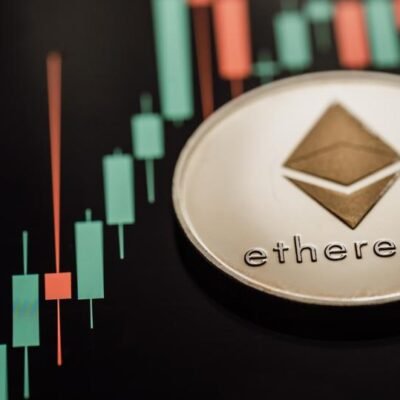
This warning comes weeks after the Supreme Court of India urged the Centre to establish a “clear cut” policy to govern cryptocurrencies.
Reiterating long-standing concerns,
Reserve Bank of India (
RBI) Governor
Sanjay Malhotra on Friday cautioned that cryptocurrency trading could “hamper financial stability and monetary policy”, even as
India continues to lack a formal regulatory framework for virtual digital assets. His remarks came during a post-policy press briefing, following the RBI Monetary Policy Committee’s surprise rate cut announcement.
“There is no new development as far as crypto is concerned. A committee of the government is looking after this,”
Malhotra told reporters, quoted by Press Trust of India (PTI). “Of course, as you are aware, we are concerned about crypto because that can hamper financial stability and monetary policy,” he added.
This warning comes weeks after the
Supreme Court of India urged the Centre to establish a “clear cut” policy to govern cryptocurrencies. A bench of the apex
court even likened Bitcoin transactions to “hawala” — terming it an “illicit trade” with potential ramifications for the economy.
At present, cryptocurrencies are not banned in India, but they are also not legally recognised. The current status remains ambiguous, with crypto assets facing taxation but enjoying no regulatory oversight. In its 2022 Budget, the government imposed a flat 30 per cent tax on profits from virtual digital assets (VDAs), besides 1 per cent
TDS on transactions and GST on exchange services.
However, taxation does not imply legal approval or regulatory structure. A government discussion paper is under review, and a multi-agency Inter-Ministerial Group (IMG) comprising representatives from the RBI, SEBI, and the Finance Ministry is evaluating global practices to formulate India’s policy approach.
The current legal vacuum was preceded by a landmark
Supreme Court judgement on 4 March 2021, which quashed the RBI’s controversial April 2018 circular banning banks from dealing with crypto entities. The Court held that the directive was unconstitutional, reigniting crypto activity in the country. Yet, the absence of a regulatory law continues to raise alarm among policymakers.
While the crypto community in India has called for progressive regulation, the RBI has consistently argued that the decentralised and volatile nature of cryptocurrencies poses systemic risks, particularly in the absence of a central authority to enforce safeguards.
With India’s crypto ecosystem valued at an estimated ₹40,000 crore, regulatory uncertainty is now affecting both investors and exchanges, many of whom are awaiting policy clarity before making further investments.






